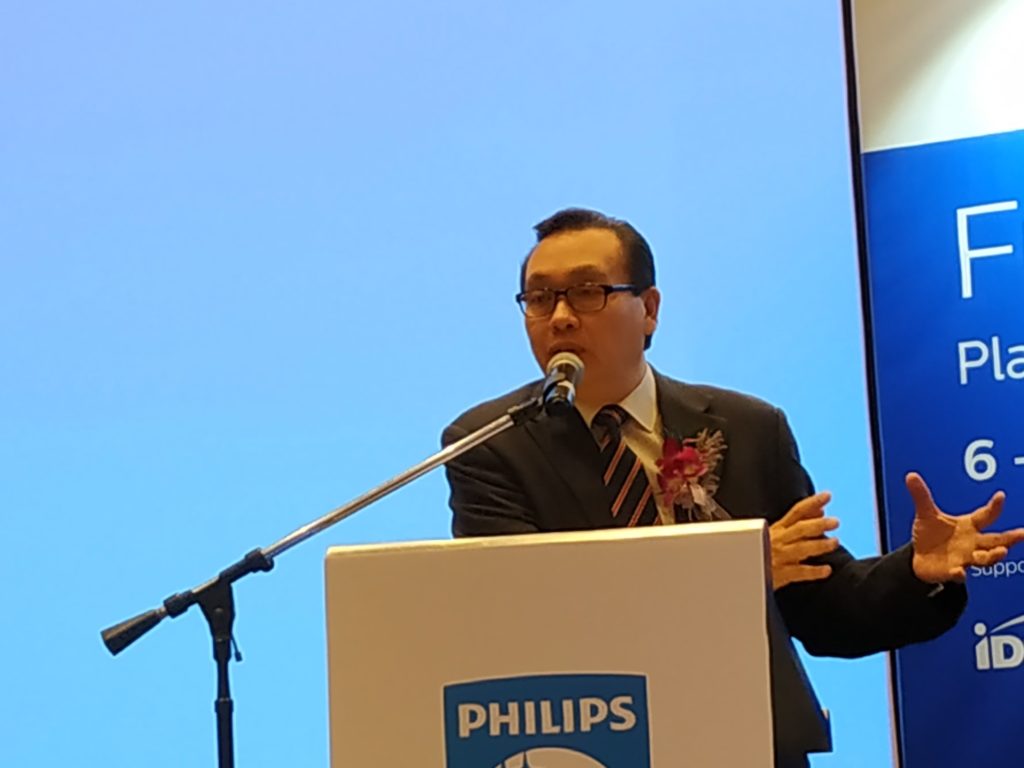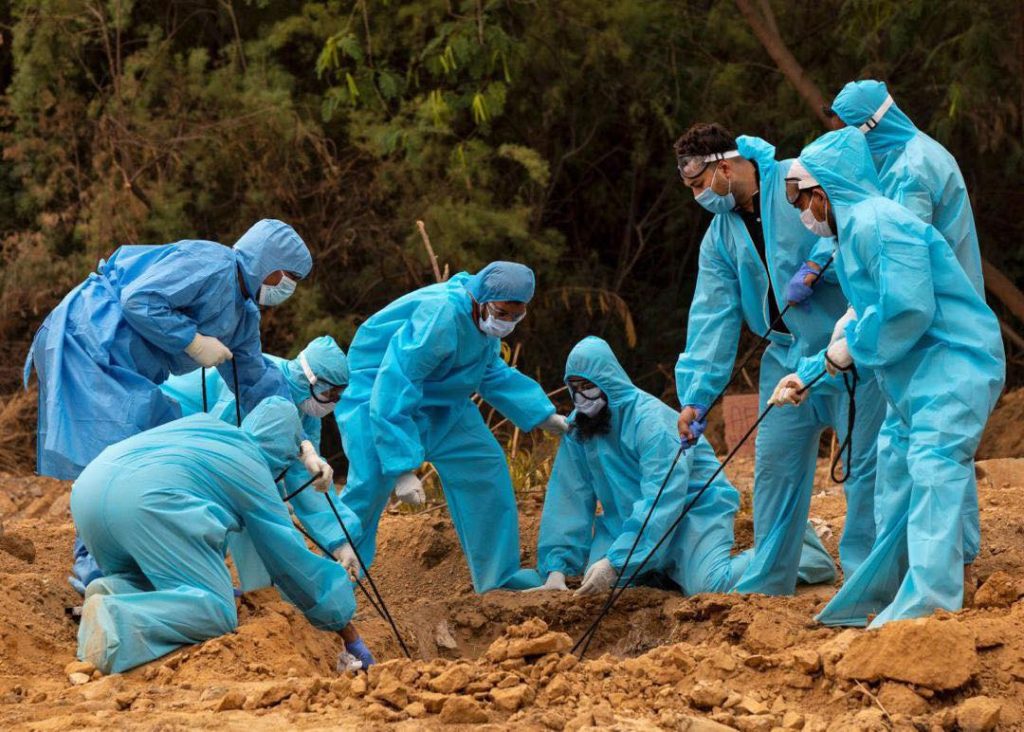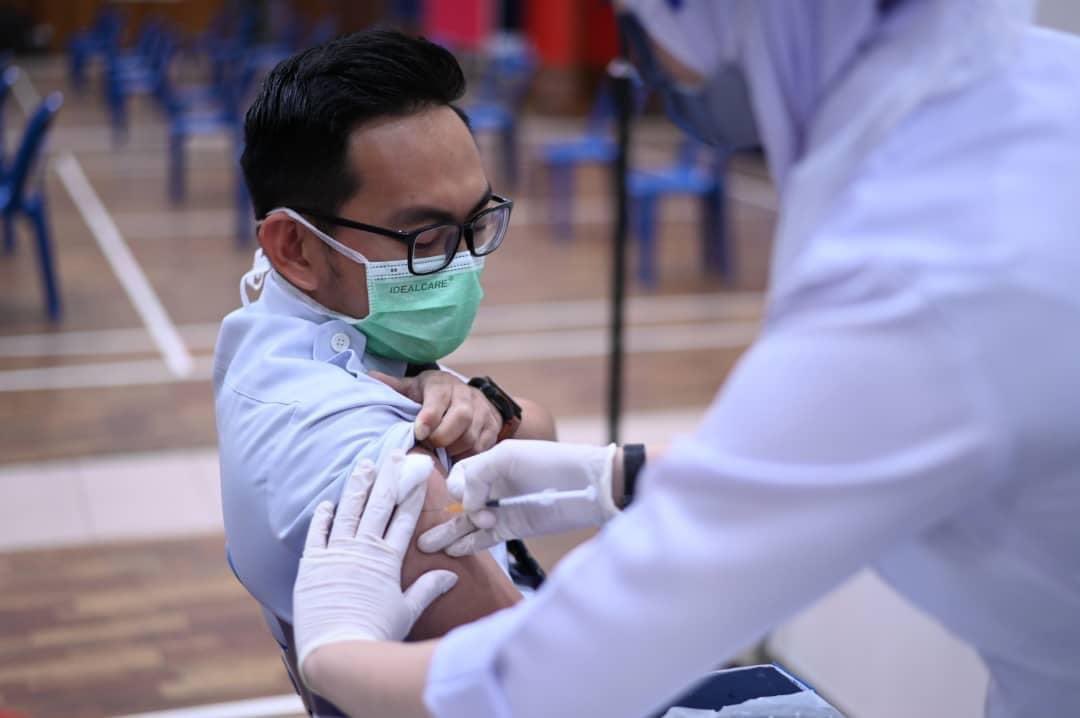KUALA LUMPUR, April 6 — Medical experts have urged the government to utilise primary health care providers to boost Covid-19 vaccine registration due to trusted patient-doctor relationships.
Dr Milton Lum, the past president of the Federation of Private Medical Practitioners’ Associations Malaysia (FPMPAM) and the Malaysian Medical Association (MMA), said the government should seek help from medical practitioners to speed up the Covid-19 vaccination rate, particularly among elderly people.
“Many people trust their GPs more than the government simply because they have formed relationships with GPs, some for decades,” Dr Lum told CodeBlue.
Dr Raj Kumar Maharajah, president of the Medical Practitioners Coalition Association of Malaysia (MPCAM), said: “GPs are role models and have for decades treated families as a whole.”
“Patients trust their family doctor and this is the time for GPs to rise to the occasion. Most GPs have been vaccinated and can showcase themselves to further give confidence to the elderly that the vaccine is safe,” he told CodeBlue.
Only about 3.1 million people aged above 60, those with comorbidities, and people with disabilities have signed up so far for Covid-19 vaccination. The government targets inoculating 9.4 million people at high risk for developing severe disease from Covid-19 in Phase Two of the vaccination programme that starts on April 19.
Dr Shanmuganathan Ganeson, honorary secretary of FPMPAM, highlighted that the Ministry of Health (MOH) should not exclude GPs from getting involved in the national Covid-19 inoculation drive.
He stated that elderly people aged 65 and above constitute eight per cent of the total population in Malaysia. He pointed out that currently, there are an estimated 2.5 million elderly people in the country and their population is growing.
“As family doctors, they will already have medical records of their patients and be in a good position to assess suitability for vaccinations.”
Dr G. Shanmuganathan, honorary secretary of the Federation of Private Medical Practitioners’ Associations Malaysia
“To the fear that they [GPs] may not be able to handle adverse anaphylaxis as compared to a hospital setting, it must be reminded that the Private Healthcare Facilities and Services Act (PHFSA) mandates private clinics to have resuscitation medicines, oxygen and ambu bags, in case of such events.
“Besides, the risk of anaphylaxis is a daily threat in GP practice, be it due to post-vaccination or to prescription drugs,” Dr Shamuganathan explained, referring to severe allergic reactions.
MOH earlier announced that GPs will be engaged to administer Covid-19 vaccines for the second and third phases of the national vaccination programme.
Strategies To Increase Vaccine Confidence Among The Elderly

Dr Christopher Lee, the national advisor for infectious diseases in MOH, acknowledged the government’s measure in expediting Covid-19 inoculation for others who have already signed up on MySejahtera for vaccination, regardless of their risk levels for severe Covid-19 disease.
The Covid-19 Immunisation Task Force (CITF) recently said that it will also prioritise frontline workers in crucial economic sectors for coronavirus vaccination.
“One of the reasons for bringing forward other groups into consideration in Phase Two may very well be due to the slow registration of our senior citizens. I believe the government is aware of this, including the fact that many seniors may be less comfortable with digital platforms,” Dr Lee told CodeBlue.
Dr Lee also highlighted other channels to increase Covid-19 vaccine registrations, including allowing children to register their parents, or opening up registrations at district health offices and public health clinics, as well as outreach by community leaders.
“The above measures will help, but the government cannot take vaccine hesitancy lightly. Addressing legitimate concerns of the public must be taken seriously and sincerely.”
“The benefits of the vaccines must be explained in a non-condescending manner. The uncertainties that still exist with the current vaccines must be acknowledged openly as these will only worsen any mistrust the public might have.”
Dr Christopher Lee, national advisor for infectious diseases in the Ministry of Health
When asked if the government should work harder in getting vaccine registrations from senior citizens or people with comorbidities, Dr Lum said: “It is the government’s duty to persuade registrations by everyone, particularly senior citizens and people with comorbidities. The government, particularly the Health Ministry, has to work harder.”
Dr Raj Kumar and Dr Lum said that empowering community leaders will be an important measure to increase Covid-19 vaccine registration among senior citizens. Community leaders who have a close connection with people on the ground can be an important bridge to connect the aspiration of the national Covid-19 vaccination strategy with elderly people, they said.
“Allowing children to register their elderly parents has been a good move. It should be extended so that caretakers and owners of aged care institutions can also register the elderly under their care as well.”
Dr Raj Kumar Maharajah, president of the Medical Practitioners Coalition Association of Malaysia
At the same time, Dr Shanmuganathan said that approaching elderly people directly will be the best solution to pull this group of people to get their Covid-19 vaccine shots.
“Likely, many senior citizens, especially those with comorbidities, are not going to come to you, we need to go to them. We need to identify those in nursing homes, in ordinary homes and even those homeless,” Dr Shamnuganathan added.
“Forget technology and MySejahtera for this group. Go to them. Do not wait for them to come to you. Mobile vaccination units is one idea.”
Covid-19 Can Be Fatal To The Elderly

Dr Shanmuganathan said that elderly people should be vaccinated against Covid-19 to avoid congestion in intensive care units (ICU) and hospital beds.
“Even if there is huge capacity, it is still wise to vaccinate, as there is no such thing as endless capacity that involves trained human resources, an everyday ample supply of disposables and human sanity.”
Recently, the United States Centers for Disease Control and Prevention (CDC) suggested that adults aged 65 and above should be the first groups to receive Covid-19 vaccines to avert sick Covid-19 patients.
CDC earlier had mentioned that aged people are at high risk of experiencing severe illness from Covid-19 infection compared to younger people.
Dr Raj Kumar and Dr Lum pointed out that leaving out elderly people from vaccination will bring adverse effects to that group of people.
“It will be a disaster to leave the aged from the national vaccination plan as they are a group of people who are most vulnerable and susceptible to the infection. Once infected, it can be fatal for the elderly,” said Dr Raj Kumar.
Dr Lum said: “If left out, there will be dire consequences for the health system. Although senior citizens and those with comorbidities are not at increased risk of getting infected, they are at increased risk of severe disease and death if infected.”








